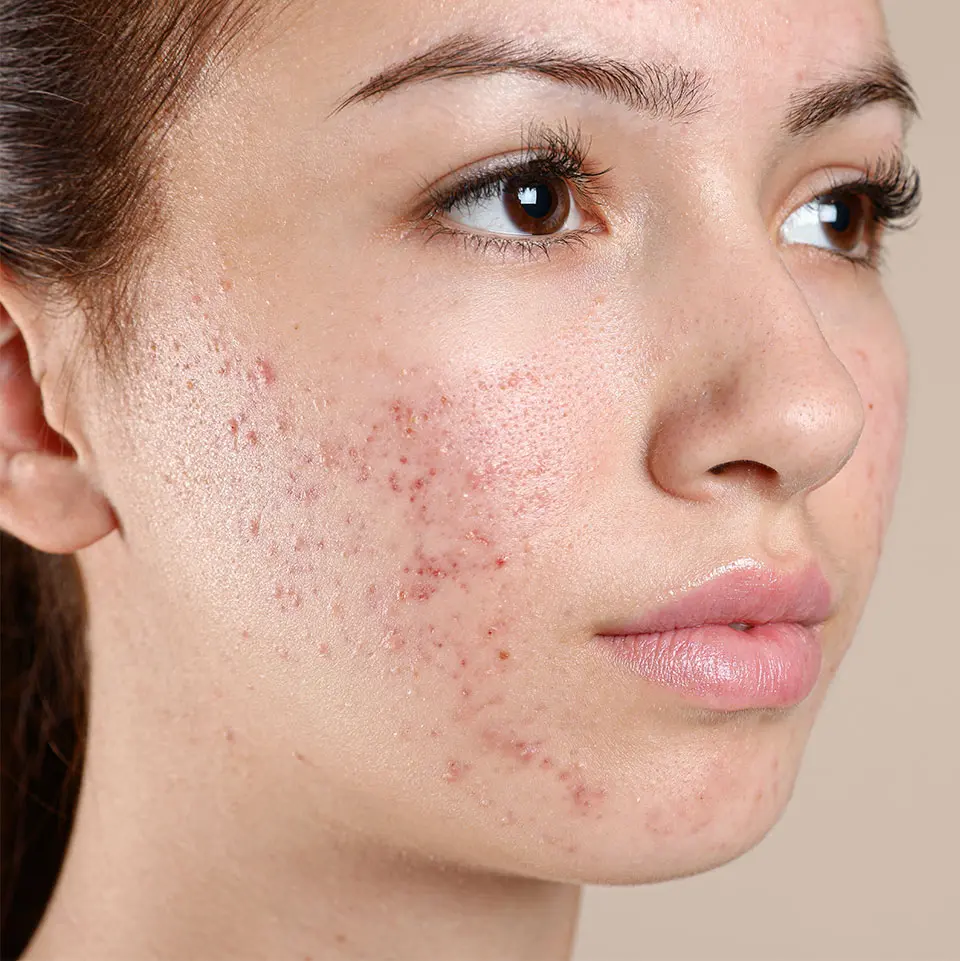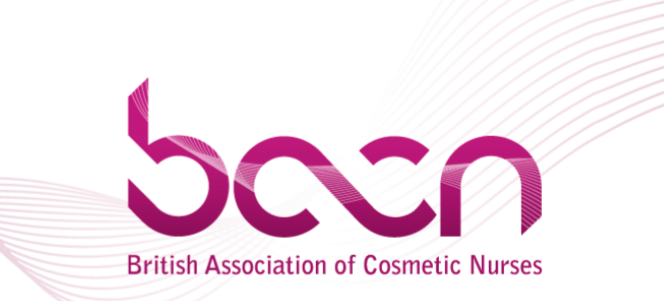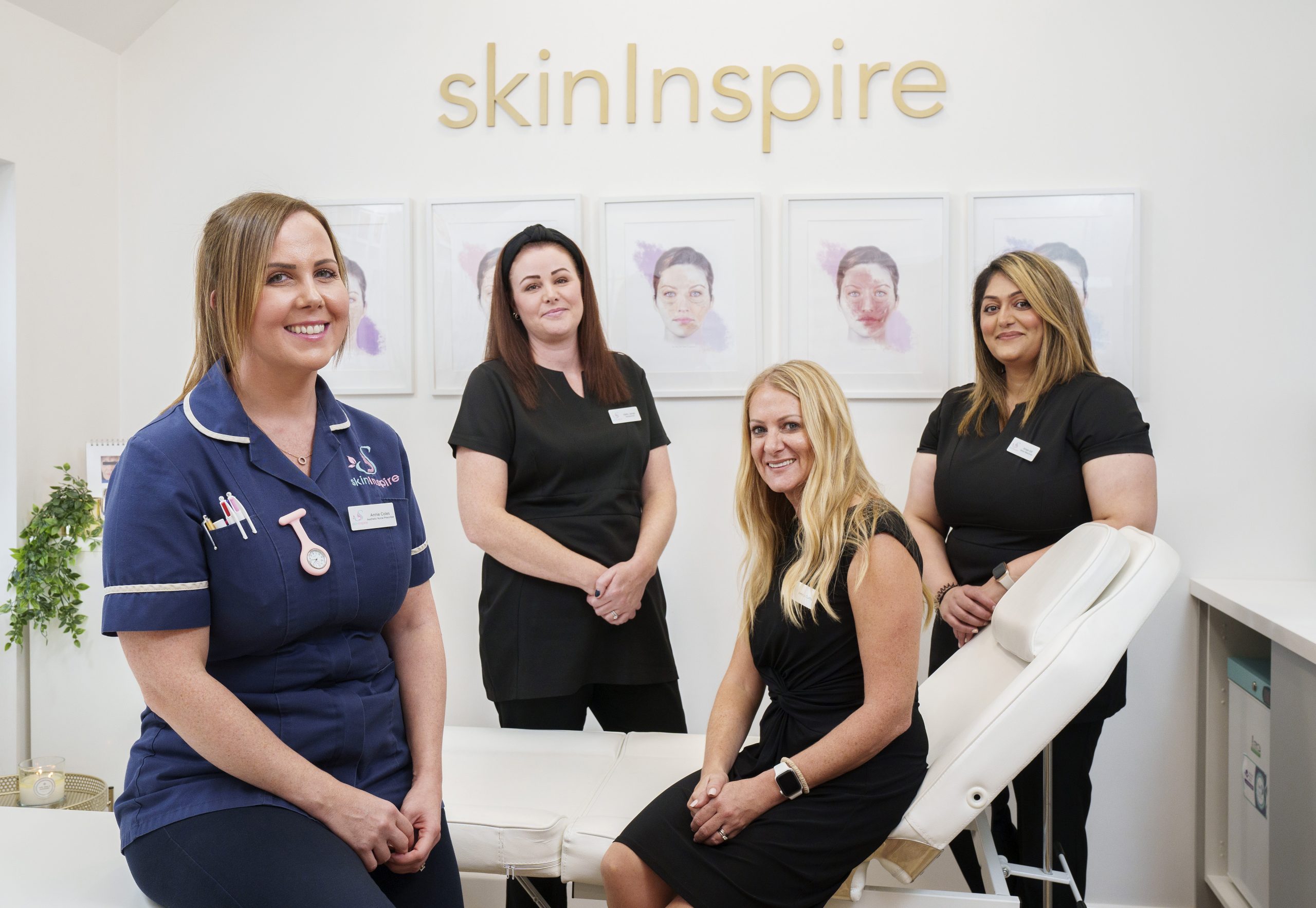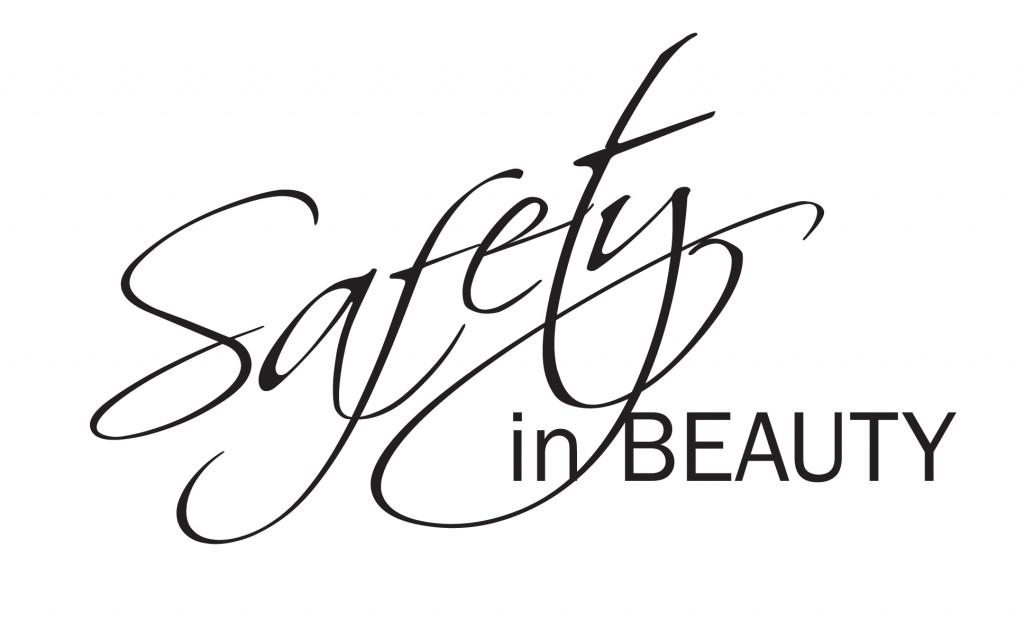Chemical Peels:
Chemical peels are an effective treatment option for acne, as they help remove dead skin cells, unclog pores, and reduce acne-associated inflammation. They involve applying a chemical solution to the skin, which causes controlled exfoliation and subsequent regeneration. We often use Obagi chemical peels to help with acne. There are different types of chemical peels, including:
a. Superficial peels: These peels use mild acids like alpha-hydroxy acids (AHAs) or beta-hydroxy acids (BHAs) to exfoliate the outermost layer of the skin. They are generally well-tolerated and require little to no downtime.
b. Medium peels: These peels use stronger acids, such as glycolic acid or trichloroacetic acid (TCA), to penetrate deeper into the skin. Medium peels may require some downtime for healing and recovery.
c. Deep peels: Deep peels provide the most significant results but require longer recovery time. They penetrate deeply into the skin, effectively targeting severe acne scars and deep wrinkles.
Chemical peels can help reduce acne lesions, improve skin texture, and even out skin tone. However, it’s important to consult with skincare professional to determine the most suitable type of peel for your skin condition and concerns.
Skincare for Acne:
Alongside chemical peels, implementing a proper skincare routine can significantly contribute to managing acne. Here are some key tips:
a. Cleansing: Use a gentle cleanser formulated for acne-prone skin to remove excess oil, dirt, and bacteria without stripping the skin of essential moisture.
b. Exfoliation: Incorporate gentle exfoliation into your routine to remove dead skin cells and unclog pores.
c. Moisturisation: Even if you have oily skin, it’s important to moisturise to maintain a balanced moisture barrier. Look for lightweight, non-comedogenic (non-pore-clogging) moisturisers.
d. Sun protection: Protect your skin from harmful UV rays by applying a broad-spectrum sunscreen with at least SPF 30 daily. Sun exposure can worsen acne and lead to hyperpigmentation.









